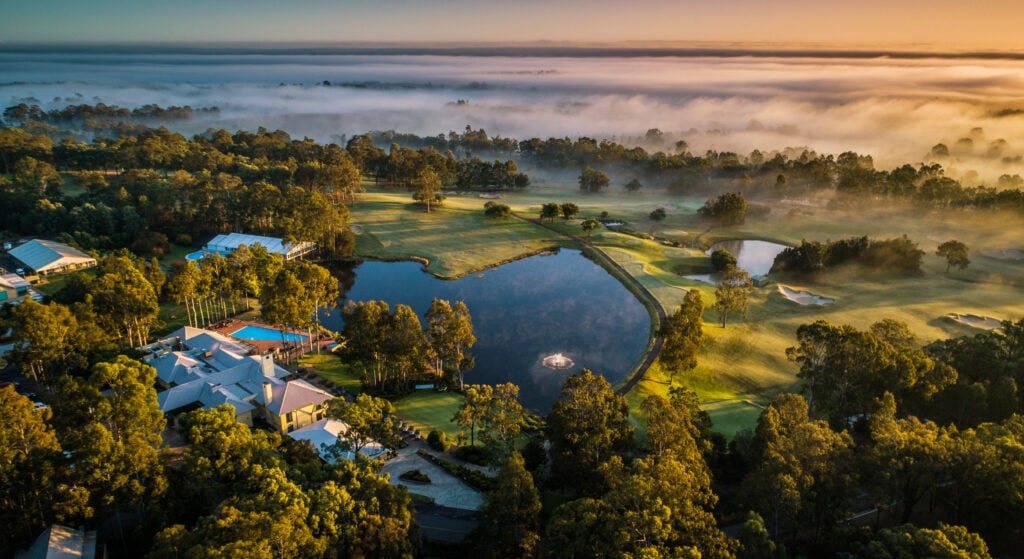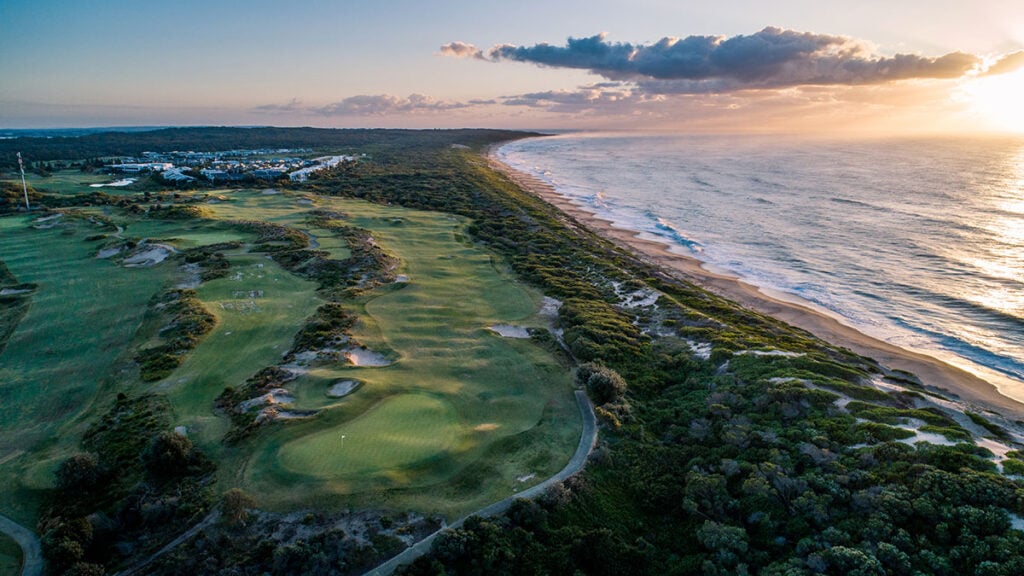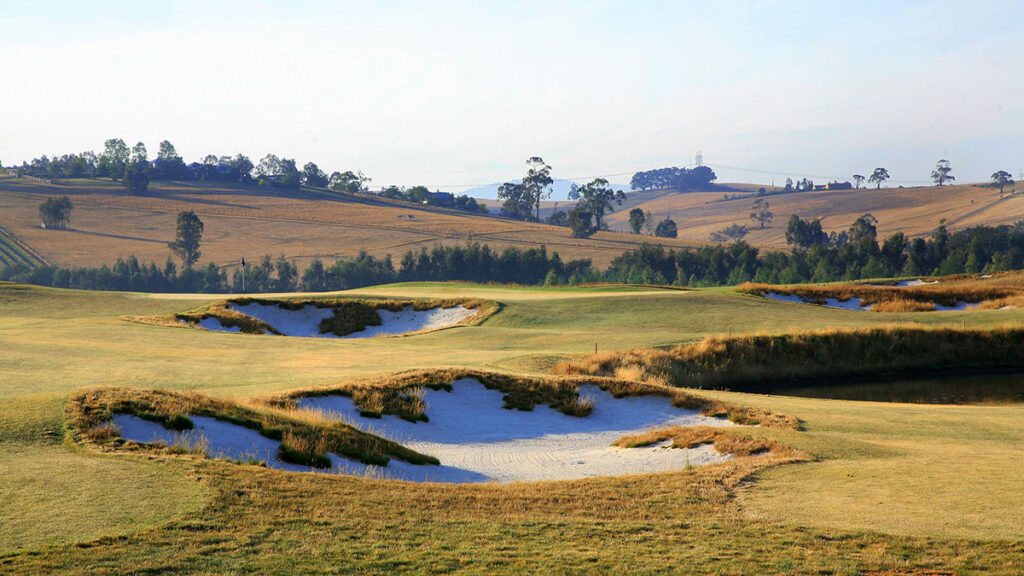Forgetting to sign up for Q-School was the best mistake Australia’s Gabi Ruffels ever made.
I was a tennis player before I was a golfer. My parents, Anna-Maria and Ray, were professional tennis players, and I was a top-ranked junior player in Australia when I was 12. I joined the National Academy for Tennis and started home-schooling. I didn’t have a social life at a time when kids should be around their peers. During a training session when I was 14, I realised I didn’t want to be there. No one believed that I actually wanted to quit, but I knew I was done.
▶ ▶ ▶
Though I was done with tennis, I still needed something to compete in. I get that from my parents. They showed me that excellence comes from putting focused effort into a goal every day. I love that lifestyle. My brother, Ryan, was playing golf (he’s a professional golfer now, too), and my mum thought I might enjoy it. I joined Victoria Golf Club and took regular lessons. My brother has answered all of my golf questions from the start. Matches between us are super-competitive, and he always tries to get in my head, so he credits himself with making me mentally stronger.
▶ ▶ ▶
In the summers, we’d come to the United States, and I played junior events in the San Diego area. When I was 16, I had a scratch handicap, and colleges were recruiting me. I loved USC because I was surrounded by some of the top amateurs in the world. Allisen Corpuz, who won the 2023 US Women’s Open, was on my team. Lilia Vu, who became the No.1 player in the world in 2023, was in our conference.
▶ ▶ ▶
In 2019, the summer after my sophomore year, I won a playoff at a US Women’s Amateur qualifier to get into the field at Old Waverly Golf Club in Mississippi. When I reached the final, I thought, Maybe I can actually do this. On the 15th hole, my caddie had to leave to fly home for a funeral. A friend grabbed my bag, and we talked about anything but golf. It let me check out between shots. When the winning putt went in, I thought, What just happened?
▶ ▶ ▶
The next year was a totally different vibe. I got a lot of attention as the defending champion. Despite the distractions, I almost won again, but Rose Zhang beat me in the final. It’s easier to play well when there are no expectations. I’m proud of how I handled the pressure throughout the week.
▶ ▶ ▶
I played in three majors in 2020 and finished in the top 15 at the Chevron and US Women’s Open. That made turning pro seem like a possibility. I needed to work on 100 yards and in, but I felt like my game was ready. I got a lot of sponsors’ invites to LPGA tournaments. It was an easy decision to turn pro because I could finish my degree online, which I did later that year.
▶ ▶ ▶
The transition to pro golf was hard.There’s no college coach telling you where to be, what time to be there and what to be doing. My mum travelled with me, which kept me from getting too lonely. In 2022, I played the Epson Tour and finished $US5,390 away from getting my LPGA card for 2023.
▶ ▶ ▶
I assumed with that finish I would be automatically entered into LPGA Q-School. Driving from Orlando to Alabama for a practice round, I was five minutes away when I thought, The tournament is in three weeks; I should make sure I’m signed up. I checked the app. I wasn’t entered, and the entry deadline had passed. Devastated and alone, I started the seven-and-a-half-hour drive back to Orlando. I called my parents and friends. They were all disappointed, but the message was consistent: it’s OK. It will all come together.
▶ ▶ ▶
It was a blessing. I wasn’t ready to compete on the LPGA Tour. I made some changes. When I turned pro, I tried to fit the professional mould, so I hired a bunch of people. I got technical with my swing. In 2023, I shrunk my team to a few people. I trusted myself in amateur golf. I can trust myself as a professional, too.
▶ ▶ ▶
I went back to playing feel-based golf. In tennis, there’s no time to think about where your racquet is or what angle your wrist is at. You must react to the shot that’s coming at you. I play my best golf when I react to each shot. It keeps me in the present and makes me a better ball-striker. I had a lot of fun in 2023. I won three times and finished No.1 on the [Epson Tour] moneylist, earning my LPGA card.
▶ ▶ ▶
I’ve been working with my dad on how to handle emotions in competition. He tells me to remain poised. I do that by not thinking too far ahead. One birdie is not the key to winning the tournament, and a double is not the end of the round. When you consistently practise this thinking on the course, it becomes a habit.
▶ ▶ ▶
As I start my LPGA career, I want to keep that poised temperament. A lot of women who I’ve competed against are already LPGA winners, but I’m not assuming that will be my path. I know who I am, and I know how I play my best golf.



